A Brief Decolonial History of Alexander Lowen | História de Alexander Lowen
Author: Gefferson Eusébio | Date of publication: 2025 (Part 2 and 3 coming soon.)
Part 1: Click here to read the article in PDF format ... ENGLISH
Parte 1: Clique aqui para ler o artigo em formato PDF ... PORTUGUÊS
I would like to begin this exposition, centered on some concepts that can create a symbolic horizon between different knowledge and experiences and, at the same time, have the possibility of complementing each other as a final mission, which is the following: to remove Bioenergetic Analysis from a Eurocentric assumption or something I call North American centrism, which we are so accustomed to looking at through more traditional studies of body clinic.
But I don’t want to do this based on a project of epistemic destruction, in the manner of cultures that claim to be more prosperous in the so-called West, especially in the north, but rather to see from within the contradictions that also form the path of bioenergetic analysis and use psychoanalysis itself, which supports bioenergetics, to begin a journey of possibility for change and that later, a little further ahead, we will be ableto include other knowledge.
I want to start with a concept that was described almost initially by the German philosopher Immanuel Kant in the 18th century, although other authors before him addressed it, which is the concept of Weltanschauung, or worldview. This would first be focused on the question of when Kant situates it in the relationship between the world and the subject, at the very moment when the apprehension of the world occurs through sensitive experience.
In Freud, this concept of worldview has a seminal text, titled THE QUESTION OF A WELTANSCHAUUNG, in the “New Introductory Lectures on Psycho-Analysis and Other Works” (1932-1936). Initially, Freud embraces the scientific view as a premise or a guide, but subsequently refutes the fact that science itself ends up not encompassing other knowledge or views that it has not yet reached or cannot comprehend.
Regarding this issue of a supposed dominance of science over other knowledge, Freud points out:
From the point of view of science, one cannot avoid exercising, here, the faculty of criticism and presenting objections and rejections. It is not permissible to declare that science is one field of human mental activity, and that religion and philosophy are other fields, of at least equal value, and that science has no business interfering with them: that they all have equal claims to truth and that every person is free to choose from which of them they will derive their convictions and in which of them they will place their belief. Such an opinion is regarded as especially superior, tolerant, emancipated and free from uncultured prejudices. Unfortunately, it is not sustainable and shares all the pernicious aspects of a non-scientific
Weltanschauung, and is practically equivalent to it. For truth simply cannot be tolerant, does not admit compromises or limitations, and the fact is that research considers all spheres of human activity as its property, and must exercise incessant criticism if any other power tries to snatch any part of it away.
(New Introductory Lectures on Psycho-Analysis and Other Works - 1932-1936. p. 116)
Concluding this part, concerning the question of worldview and daring to articulate Freud with our Antonio Bispo dos Santos or Nego Bispo, who portrays a true cosmophobia of the Eurocentric subject, Freud’s text bequeaths to religion and philosophy, before science, knowledge that manages human anxieties almost completely, encompassing the pains we have from not having explanations of where we came from or where we are going.
Therefore, within Bioenergetic Analysis, implementing an expansion of vision beyond what is reported by Alexander Lowen himself in his works and, more precisely, in his autobiography, is necessary to be able to make a point so dear to psychoanalysis: the unsaid.
Those who stick to what Lowen wrote about his childhood history, and who have a desire to employ more elements of the unsaid, will be able to form a broader body about Bioenergetic Analysis. For this purpose, two other concepts here, one formulated by a thinker established in the north and another established in the Global South, can help us build a little more and walk better in this construction.
The first of these is Walter Benjamin, who with his “Historical Materialism,” invites us to “brush history against the grain” (p. 13), in a very poetic and imagistic term from one of his works, titled “The Angel of History” (2012). Within a perspective of “breaking tradition,” the mission of historical materialism, which wants, with the objectivism of the real that occurs in history made by humans, that it, history, also be seen from the perspective of the defeated.
Along with this, already from a perspective of our Global South, I bring here an excerpt taken from Bruno Simões Gonçalves’ book, “Nos caminhos da dupla consciência” (On the Paths of Double Consciousness), to tell us about Carlos Fuentes, a Mexican writer who immortalized the image of the buried mirror in a book…
…where he recounts the formation of the Hispano-American world and its relationship with Spain. The writer recalls the story of an indigenous people who buried mirrors to serve as guides for their dead on the path to the underworlds - subtle and tortuous realms. He argues that there is a whole universe of Latin American culture that is submerged, made invisible, like a mirror of our imagination and society that was buried, taken to the invisible world of the dead, but dead who still inhabit among us, and within us. (p. 41)
It is in this mission of rescuing the defeated and unearthing the mirrors that I wish to bring this first part of Lowen’s history, perhaps denied by himself, even due to the unbearable pain in the child of little Alexander concerning his parents, so different and unloved by each other, who dumped their resentments onto him, each in their own way, sometimes through complaint, sometimes through neglect.
Let us then begin by understanding the Russian origin of the Lowen family, who disembarked in New York, most likely coming from Russia in full degradation of a secular regime. Beyond the origin outside Central Europe and outside the power that the United States already was at the time, it is worth including the Jewish diaspora of the Lowen family. His father, a born merchant, like a large part of Russian Jews.
Without forgetting the antecedents of Russia, which around the 19th century was the main territory occupied by a Jewish population, reaching 80% of the diaspora Jews.
The Russian territory, unlike much of Europe, even maintained fixed territories exclusively for peoples of the Jewish diaspora, starting from the 10th century. With Russian expansion and the growth of the Tsarist Empire’s territory at the beginning of the 19th century, it is worth remembering that part of Eastern Europe, what is known today as Poland and other Slavic countries, were under the territory of the Russian Empire and, consequently, housed large Jewish populations. This latter population is the one that migrated, at the turn of the 19th to the 20th century, to the United States. Before talking about this migration, it is worth bringing a context found in the novels of Dostoevsky and Leo Tolstoy, concerning social, cultural, and relational degradation - very focused on the issue of marital relations and families. Being a country still immersed in feudal control in the mid-19th century, the degradation of the family, as portrayed in Tolstoy’s novels, and the social relations of domination and property, brought by Dostoevsky, give an idea of how the worldview of Russian-Jewish diaspora members was impregnated with a certain melancholy and disbelief in the family institution.
In contrast, the so-called “America” exuded hope and ambition - being the land of opportunities, especially starting from New York, where Alexander Lowen’s father and mother arrived. In two points and in their own ways, they assimilated America with a certain relief on one side and as an opportunity on the other. As Lowen describes his father as someone cordial and with little ambition, one feels the relief of being in lands that present opportunities not to think so fixedly about subsistence and, in a way, to live as someone a little less stern. The effect of the
opportunity for life, however, generates in Mrs. Lowen the impulse to succeed in life and to project all her dissatisfaction onto her husband.
We can perceive, from these small accounts by Lowen about his parents, how the first years of life unfolded in the formation of a family that repeated a certain degradation experienced by the family institution, mixed with the need to be an engine to drive its members to success - a stage we can see in writings still from the 19th century, such as Friedrich Engels’ “The Origin of the Family, Private Property and the State”.
Beyond all this
The importance of these rescues, not only from the point of view of a successful biography built on tradition, using Benjamin’s words, as we are all accustomed to, in a worn-out formulation of a so-called “hero’s journey,” observing through historical materialism the history of the early years and even the history of the antecedents of someone who bequeathed us such an important tool for self-knowledge and for the relief of suffering as Bioenergetic Analysis, allows us to try to complete some points that are always denied to us, but which return to us as if they were symptoms, pointing out that the so-called body therapies rest in a bourgeois field par excellence, being restricted to a handful of privileged people and giving us the work of always having to resort to Reich, as a point of contact with the social.
This makes us forget the implication of a more comprehensive formulation of the social, which has been passed down to us, especially in recent times, as something merely from an assistance-based world or focused on a certain regime of rules for helping the suffering of the needy.
Making this first rescue, of a sufficiently human Lowen, with a history without great triumphs or idealizations, but human in his essence, allows us to observe a saying by Elisabeth Roudinesco, a French psychoanalyst and writer, concerning Freud himself, who allowed us to “be heroes of our own lives,” starting from the rescue of the human through our analyses.
I believe that a human can only take shelter in a relationship when there is another human on the other side. In times of so many so-called “advances” and “developments,” the possibility of having the body and language able to go through processes of inclusion of other worldviews, allowing neurodiversity, diverse genders, the racializations of white people (and not just of other men), the inclusion of neutral pronouns in vocabularies and everything else that makes us increase these worldviews, is just the beginning of the journey. We will be able to count and include more and more perspectives, since history, as also said by Benjamin and by the Brazilian Nilton Ota, who studies neoliberalism, remains in dispute. And it needs to be disputed based on
the inclusion of worldviews, of what was not said, as psychoanalysis points out well, and by the search for new epistemes, which this time can advance with the language and body of everyone.
I am just at the beginning of research on Lowen, his techniques, his fortuitous encounters with Reich, Pierrakos, and so many others. In addition to his important contributions concerning the subjects of his time, traversed by character formations that he rightly saw as a response to social incidences such as schizoids and narcissists, for example. We will continue with this rescue, but based on a premise about his contemporaneity and how he materially lived it, even if involuntarily, this is the mission we have. To brush history against the grain, so that we can give the real dimension of men as men and not as gods, and this is already of great value to honor all lives that are in this world.
We are beginning to rewrite, or rather, we are beginning to tell the whole story!
References:
- Novas conferências introdutórias sobre psicanálise e outros estudos (1932-1936) - “A questão de uma Weltanschauung” - Sigmund Freud
- A terra dá, a terra quer - Antonio Bispo dos Santos
- O anjo da história - Walter Benjamin
- Uma vida para o Corpo - Alexander Lowen
- Nos caminhos da Dupla Consciência - Bruno Simões Gonçalves
- A origem da Família, da Propriedade Privada e do Estado - Friedrich Engels
- Uma breve história dos judeus na Rússia - Russia Beyond BR (rbth.com)
- Onde mais os russos vivem, além da Rússia? https://br.rbth.com/estilo-de-vida/85824-onde-mais-os-russos-vivem
- Hoje na História: 1664 - Nova York é batizada por ingleses após Guerra Anglo-Holandesa https://operamundi.uol.com.br/hoje-na-historia/podcast-hh-1664-nova-york-e-batizada-por-ingleses-apos-guerra-anglo-holandesa/
- Como era a vida em Nova York no início do século 20? https://pt.quora.com/Como-era-a-vida-em-Nova-York-no-in%C3%ADcio-do-s%C3%A9culo-20-1









![A Brief Decolonial History of Alexander Lowen [EN, PT]](/images/Article_ENPT_Gefferson_Eusébio.png)


